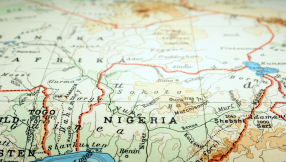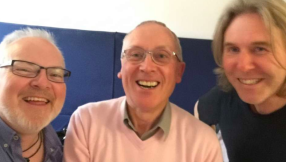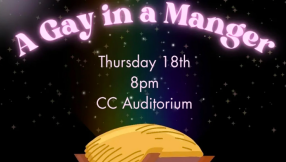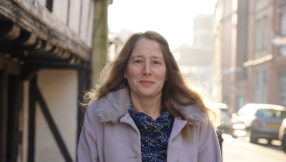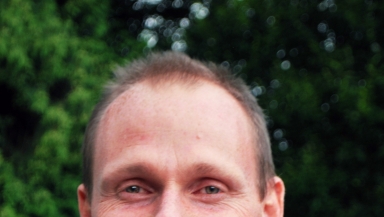
"Lord, I'll do anything, I'll go anywhere." This was the prayer of Simon Guillebaud as a young man, before he was called into one of the world's most dangerous mission fields.
In 1999, when he was in his early 20s, Guillebaud gave up a steady marketing job to move to Burundi, a war-torn nation in the Great Lakes region of Southeast Africa. In the 15 years since, he has seen God move in incredible ways, and is passionate about seeing the country and its people fully restored.
"I went out with a few hundred pounds, most of which got stolen on the first day, and I just thought 'Bring it on,'" he tells Christian Today.
"That was in 1999, when Burundi was the most dangerous country in the world and I fully expected to die. Other people I cared for were killed and there were tons of ambushes, but I remember a friend once leaned across to me and said: "We're immortal until God calls us home". Philippians 1:21-22 says "To live is Christ and to die is gain...which shall I choose?" That's a win-win. I desire to be with Christ, and safety is not the absence of danger but the presence of God. We live by fear so often in Western culture, but in Burundi you have to live by faith."
Guillebaud set up an umbrella organisation, Great Lakes Outreach (GLO), which works with local groups and gifted leaders to share the Gospel, and has seen one percent of Burundi come to Christ in the last eight years – 100,000 people.
He is full of compelling stories about miraculous events. "My friend Agnes was deaf, dumb and blind, and she was permanently curled up in a ball. For seven years her parents would wheel her onto the patio to catch the sunlight and then wheel her back inside every single day," Guillebaud recalls.
"She must have been prayed over a bunch of times, but then a group of young people prayed for her and her whole body uncoiled. She got her sight and hearing back but was still lacking speech. She joined a church choir by faith and then a few weeks later God released her tongue to praise him and since then she has not shut up!" he laughs.
"She's a turbo-charged evangelist, and you just can't debate her story – she was on national radio, and everyone knew her as a vegetable but now she's fine."
Another story involves a woman who refused to listen to a team's Gospel message, until a girl was released from demon-possession before her eyes. "20 people gave their lives to Christ that day, including that lady, and I think anyone would if they saw that kind of power," Guillebaud notes.
"Another time, a witchdoctor invited some of our guys – which is incredible because witchdoctors rule by a culture of fear – and they started speaking the name of Jesus. He fell down under the power of God, and then asked them to come back after a couple of days. When the team turned up, he'd assembled the whole village – they preached the Word and 50 people gave their lives to Christ."
As Guillebaud speaks, he gives the impression that he could talk about God's provision all day. He's clearly passionate about releasing people into the fullness of life, and seeing them transformed by God's goodness.
But why is it that we so often hear about these incredible miracles taking place abroad, while in the UK they don't seem to be nearly as frequent?
"I can't give a satisfactory answer to that, but there are several contributing factors," Guillebaud responds.
"In the West we have access to healthcare, and as soon as we fall ill we ring up the doctor, while Burundi has the least amount of doctors per capita in the world.
"There's also a dimension of spiritual hunger – when people pray in Burundi 'Give me my daily bread' they really mean it. We've never had to pray that, but in Burundi there are no social services, so there's a desperation and a recognition of need, and a humility which is often lacking in us. Burundians will fast, whether willingly or unwillingly. CS Lewis said "God gives where he finds empty hands", and ours are stuffed full. There's a challenge to us in the West there."
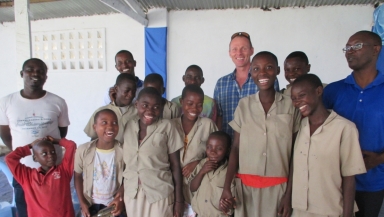
He continues: "There's also a circle of faith and unbelief. Africans are very innately spiritual; you don't have to teach them that Satan and God are real, they know that and they've seen the power of both – they've lived under the fear of the witchdoctor and have experienced the freedom, or not, with Jesus.
"It's hard for us in the West to believe because we're so cynical and always questioning. Sometimes we need to be slapped in the face with the kind of power encounter which happens more out there. And then a friend of mine once said that we see more miracles in Burundi because we leave the Church building – the signs are for the unbelievers. The Kingdom of God is the best kept secret, trapped in the four walls of the Church. We're meant to be out there, pressing into the Kingdom. It's in the darkness that we see these outpourings, which is a real challenge to the Western Church."
As for the UK, His current message is that the walk of faith is 'certainly uncertain' and 'carefully careless'. "When we journey with God we can be certain of who he is, of his character, of his worth, but once we've got that then it's totally uncertain as to how we live truly authentically," he says.
"We don't know the outcome of what that might be, but we can trust him, and can faithfully leave things to him – being carefully careless. As God calls he will show you. We tend to want our ducks all lined up in a row, but the only guarantee if we wait for that is that we'll miss out on endless divine opportunities. Most of us are constrained by fear, and I want to see people living by faith, free from fear."
Guillebaud contends that "fear is the end of faith", and explains that the very real possibility of losing his life in Burundi has taught him to be thankful for the way God has provided. "I've experienced death threats, and there was once a man who wanted to gouge out my eyes," he reveals.
"The biggest lesson I've learnt from Burundi is gratitude – everything's a gift. We live in a culture of entitlement, but when I thought I was going to lose my eyesight I thought 'Wow, what a gift it is to see!' If you ask a blind person whether sight is a right or a gift, they'll say it's a gift, but we take it for granted.
"Health, access to clean water and enough food are all gifts, and yet we don't think twice about them. But then I know a boy who ate mud for a year because he was so hungry, and he had to have stones cut out of his gums.
"I thought I'd be dead by 30, didn't think I'd ever get married or have kids, and those are gifts, not rights. I perhaps see a grimmer side of life to most people, but I'm a happier person because of it," he insists.
"We learn in the extreme darkness of a warzone the privilege of service. You don't have to go to Burundi to learn that, but you can apply the lesson."
And it is these lessons that Guillebaud hopes to share in his new book, Choose Life – a volume of 365 readings, one for every day of the year – which he describes as "a daily kick up the backside, or encouragement, to make good, life-shaping choices".
"I'm really excited about it! I've written a number of books, but this is a daily shot in the arm for people to amp up their discipleship. It's not about lashings of guilt, but about choosing gratitude," he adds.
"It covers so many different things, and is full of incredible words from amazing people such as Oswald Chambers, Tim Keller and John Piper, and we're also releasing an app that is 21 weeks of challenges – one a week – and I'd love people to join in with that interactive style community."
Currently in the UK with his wife and three children for two months, Guillebaud has no plans to leave the mission field just yet.
"I was at the National Prayer Breakfast a couple of months ago and this lady came up to me and said 'Do you remember me? 15 years ago I was in one of your youth camps, and now I'm a Member of Parliament'. Those are the kind of things you get to see when you're in it for the long-term – you see the fruit, and the outwork of the long-term vision," he says.
"I don't want security – when you have security, you don't need God. I just want to be in his will, that's the safest place to be. It's amazing to have the opportunity to come back and tell stories and see lives transformed through prophetic little Burundi where the Lord is doing great things.
"It's in the darkest places that light shines the brightest."
Choose Life is out later this month, published by Lion Hudson.










